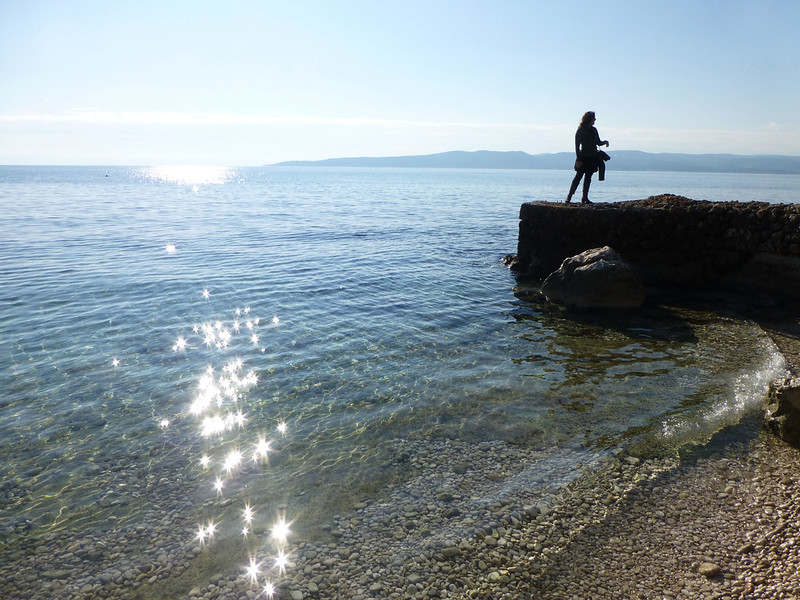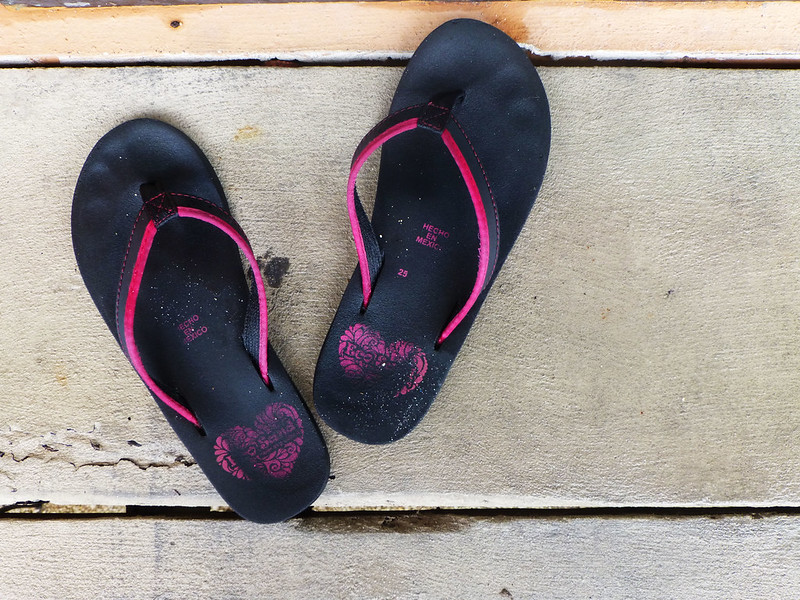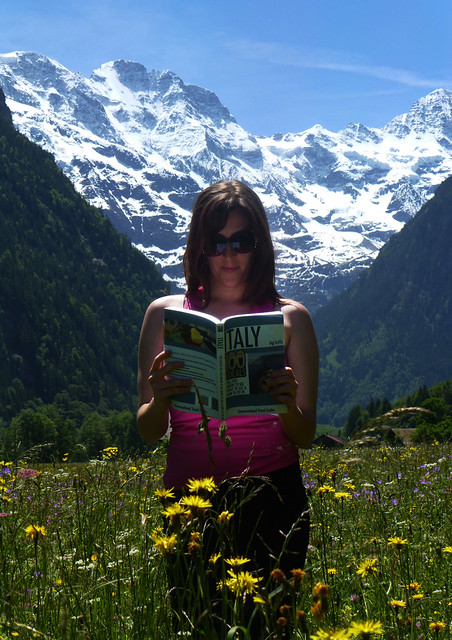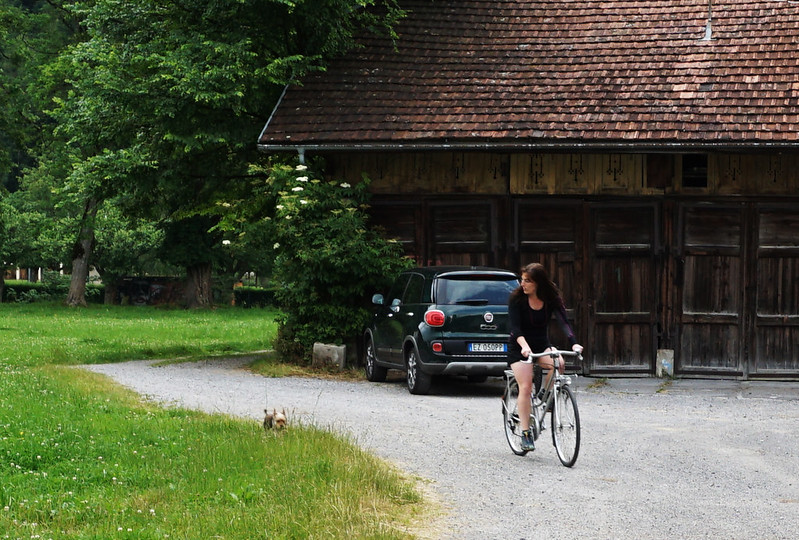How do you plan for the future?
It’s a question that comes up a lot.
When people hear that I’m traveling full-time, moving around between the Swiss Alps, Mexican coastlines, Croatian islands, and Slovenian valleys, there are plenty of questions that come up a lot. How do I afford it? Do I get lonely? How do I take my dog?
And this one: How do you plan for the future?
In other words, what about retirement and savings and stability, you crazy hippie?
It’s a fair question…sort of. But it’s founded on an incorrect assumption…that full-time travelers are not earning, saving, and investing just like people who stay put.
Because that’s the answer really. There is no magic bullet, no special thing that I do differently, no just-for-travelers retirement plan. I plan for the future the same way other people plan for the future: by (generally) spending less than I make, saving money, and (hopefully in the near future) doing some investing.
Those concepts don’t change once you pack a bag and board a plane.
So here’s where a big misunderstanding comes into play, because you might be saying “Well, duh, but how do you spend less than you earn when you’re traveling?”
And so it all comes back to the misconception is that my lifestyle is expensive.

I get where this comes from. If you’ve ever taken a whirlwind two-week jaunt through Europe, you probably ended up spending a whole lot of money. And I live in Europe full-time at the moment, so I must be spending a whole lot of money too, right?
Nope.
Because that two-week trip through Europe means lots of flights and trains and full days of sightseeing, attractions, cafes, restaurants, and not to mention nightly B&B, hotel, or even campground prices. It adds up quick.
The difference between my lifestyle and your two-week vacation is that I stay a lot longer and spread out my expensive attractions, events, and evenings out. I’m also working, so I’m not out sightseeing every day. And I don’t have some really big ticket items that your two-week vacation comes with. Namely, round-trip airline tickets and (the biggie) expenses back home.
Let’s unpack that one a little: any trip becomes way more expensive if you are trying to pay a mortgage, a car payment, two cell phone bills, cable TV, car insurance, and health insurance back home while also paying for accommodations, transportation, food, travel insurance, and other daily needs and wants abroad.

Of all the things I just listed, the only ones I pay are my expenses on the road. I don’t have any payments back in the US. No TV. No phone. No mortgage, car, or US insurance.
The other difference between my lifestyle and that two-week trip is that I travel slow. When you’re moving around every two days, you are paying a premium both for transportation and accommodation. Think about it in your home city: how much does someone pay nightly at a mid-priced hotel? Now, how much does your monthly rent come out to nightly? There’s probably a big difference. You’re spending a lot less than the hotel stayer.
It’s the same in other parts of the world. Staying in a hotel for two nights in Paris costs a ton. Renting a very small studio apartment for a month could cost as little as $1,000. Renting that same studio apartment for a year could cut that monthly figure in half.
The same goes for transportation. You can spend $50 – $200 on train tickets every two days to head across the border to the next European country, adding up to a whopping $300 – $1,200 for two weeks. Or you could stay in Ljubljana or Paris or Barcelona for a whole month and spend less than $50 total using public transportation to explore the city and a few choice countryside locations nearby.
And those are just a few examples of how full-time travel is actually very affordable, even here in Europe.

Many full-time travelers who are just starting new businesses choose to hang their hats temporarily in Southeast Asia where you can live reasonably well on very little money. The same goes for South America and even Eastern Europe.
Let’s say you start a new business, perhaps as a copywriter or a graphic designer, something you can do remotely (whether remotely means your living room in Boston or a beach hut in Belize), and you are only making about $1,000 a month to start. Would you rather be making $1,000 a month in Buenos Aires, Argentina (where the estimated monthly living cost is about $900), Split, Croatia (where I spent about $1,300 per month), or Denver, Colorado, where the estimated monthly living cost is $2,500?
Or, let’s say you have an existing remote-run business in San Francisco that makes you about $3,000 per month and you’re struggling to make ends meet (since $3,000 is rent in San Francisco). You could easily start putting over half your income into savings and investments by heading to Toledo, Spain (where I spent less than $1,500 per month). Or you could go really crazy and head to Chiang Mai, Thailand (cost of living estimated at $500 per month) and start saving 75%+.

And so we tackle the first bit of advice that any good financial advisor would give you: from the road, it’s easy to live within your means, to save, and to plan for the future. It just means traveling differently.
Shifting gears a bit, here’s another way I’m planning for the future:
I am spending time and energy on things other than work and saving. All the retirement accounts in the world won’t give me back my health if I squander it on long hours at the desk, unhealthy eating habits, immense stress, and a sedentary lifestyle (all things I was absolutely guilty of when living in the States full-time).
Travel encourages me to get outside, spend more time in fresh air and sunshine, exercise more, and eat better (in Switzerland, there are no GMOs to worry about; in France, fresh, local, seasonal ingredients are essential and anything else is bad form).
Don’t get me wrong. I’m working hard and I’ve definitely had a lot of stress, especially in the past 1.75 years spent starting my new venture. But the light at the end of my tunnel (if all goes well) is a sustainable profitable passive income, which means I can work less and still be earning. I can take a vacation and still be earning. I can someday retire and, you guessed it, hopefully still be earning.
And so traveling full-time makes me live a little better now and to, very naturally and easily, slip into healthier habits that will (one hopes) lead to better health as I do get toward retirement age.

Finally, it’s important to understand that when I think about retirement, I don’t think about the US. This makes a huge difference in what I’ll have to save in order to retire. Retiring in a country like France, lauded for its public healthcare system, means saving a ridiculous amount of money on healthcare. Retiring in Southeast Asia or Central America means that a modest budget can still buy you a maid and other household help that you may need as you age. It also means plenty of sunshine and fresh air.
I don’t know where I’ll retire specifically, but I do know I have lots of non-US options with great healthcare, good weather, and lower costs of living.
And so my answer to planning for the future is the same as a small entrepreneur who stays put might answer. It’s about saving. It’s about being aware of your incoming and outgoing money. And in my case it’s about keeping my options wide open to the world.
Looking for more financial and planning info? Check out my interview with Nora Dunn and my budgeting + saving category.

19 comments
I don’t worry about retirement, but I think we can’t count on that Southeast Asia (or any other region) will always remain cheap and easy place to retire. Economics and immigration policies change as we speak.
Certainly, but we can only work with the information we currently have and it’s fair to assume that there will always be some options open. And it would be a sad day when every single affordable place on the planet closed their doors to retirees.
Love love love this article. Because it once again shows that there is not just ONE way to live a dream life. That the “American Dream” is not the only formula. In fact, we are reading an amazing book (The 4 hour work week) is right up there with the same exact message. I have faith that the doors will always open for you. You will be just fine. Ironically I never thought to ask you this question! I know you had it covered.
:)
Excellent post, Gigi, and something so many people don’t think about. As you said, on holiday not only are still paying for all of your expenses back home but you’re splurging because it’s just a couple of weeks a year and spending money traveling about quickly to see as much as you can, eating out every meal, paying for attractions daily. Long term travel, especially in places like SE Asia, can cost less than 1/4 of expenses at home. I just find it’s a very different mentality…. people either embrace the idea of long term/ expat lifestyle or they don’t but they don’t seem to mesh much.
Exactly!
Gigi- great post. People are always asking me how I am able to travel so much, and I always say that for the most part traveling can actually be cheaper than living your regular life. This was especially true when I lived in North America! Regular life is expensive!! Now that I’m in the Middle East it’s so cheap for me to fly places and since I’m not a super luxury traveler it always works out to be much cheaper than if I were to compare it to what I would spend living in Canada for the same amount of time!! Love your blog!
Kristine
Thanks – and agreed!
Hi Gigi,
Thank you for the nice article that we now can share with everybody who asks us the same question. However, when we get the question we also get this question ‘but what’s your PLAN for the future’? Meaning ‘when will you have a normal life again, where and when will you settle, buy a house and car and have a 9to5 deskjob which you will stay at until you’re 65 ?’ People desperatly want us to have a PLAN that fits into normal expectations & do not see our lifestyle as a proper way of living. They see it as an ending story, but why should it be? Why would our lifestyle be less of a plan?
I know what you mean. “Will you settle down/go back to the States?” is another one I get often. Planning to address it soon, but I think people will be somewhat disappointed by the short answer of “Who knows?/Probably not.”
My wife & I have only been traveling full-time for (nearly) 2 years now. We saved up and prepared for 4 years (we’re kinda long term planners) before finally quitting our corporate jobs. Now that we are housesitting and traveling slow our costs are significantly lower than what we though they would be. You’re thoughts on taking things slow and living in other cultures is so right. The adventure is still there, it’s just cheaper.
Preach. :)
Thanks for the great article. My family is nearing the end of our RTW trip and we’re starting to work out the details of how we’ll earn a living once we return to the US. One question we have about digital nomads living in Europe is visas: how did you manage to get a long-term visa (and avoid the strict 90-day Shengen rules)?
Hi Gretchen!
I just did a post on my own visa story here: https://gigigriffis.com/how-i-got-swiss-residency/
From what I’ve heard from other expats, there are similar visas available throughout Europe for self-employed folks. Other typical visas include student, family reunion (e.g. if you are getting married or have a parent in the country), and work. And some European countries also do ancestry citizenship – so if you can prove your parents, grandparents, or even in some places great-grandparents, were citizens of that country, you may be eligible for citizenship yourself.
What a well written article on something close to our hearts. How we wish we had started our adventure years earlier. For many reasons, health being among them, we sold our home, and have been house sitting for the past three years.
Do we have any intention of stopping? A resounding NO. Can’t imagine going back to our old lifestyle.
Being on a pension, we too spend way less, than we did going on our European vacations. What used to be 200 Euros a day for food, etc. (not lodging), has shrunk to 40 Euros a day. Granted, we don’t eat out as often, but with the wonderful produce available in France, and elsewhere, you don’t want to.
The only expenses we have in Canada, are car insurance and out of country health insurance, which frees up a lot of money.
Keep the blogs coming!
Thank you!
[…] The long answer is here. […]
[…] :: Hey Full-Time Traveler, How Do You Plan for the Future? […]
[…] income is variable, but I also try to set aside a decent percentage each month for the future–both to tackle unexpected expenses or emergencies and, of course, to create more security for […]